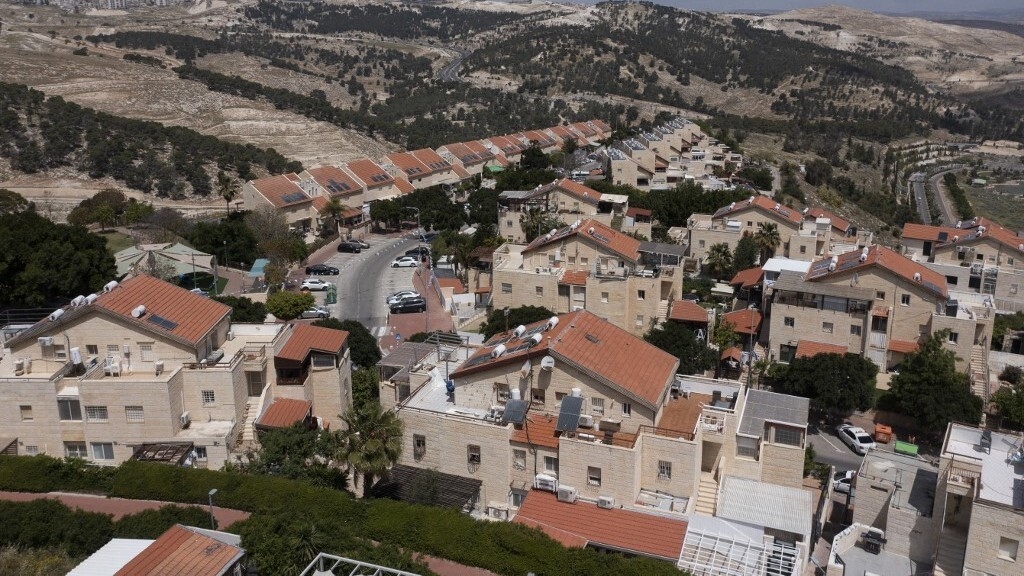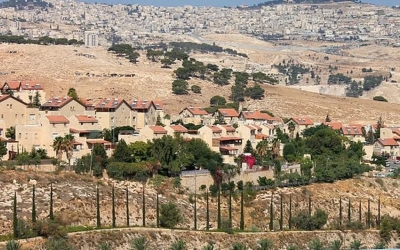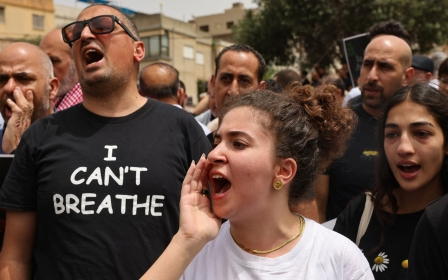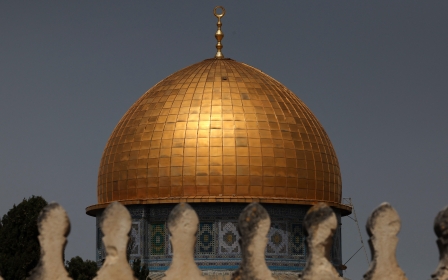Israel shelves plans for E1 settlement project 'splitting West Bank in two'

Israel is set to shelve a plan to expand a settlement east of Jerusalem, which, if constructed, would divide the occupied West Bank in two.
The government's subcommittee for objections within the Higher Planning Committee of the Civil Administration, which authorises settlement construction in the West Bank, is planned to meet on Monday to discuss the project.
The plans for the E1 settlement project, which would see 3,412 housing units built for Jewish settlers on occupied Palestinian lands, would connect the Kfar Adumim and Maale Adumim settlements with occupied East Jerusalem.
According to the Israeli news outlet Haaretz, the office of Israeli Prime Minister Benjamin Netanyahu asked the Maale Adumim council to withdraw its request to hold the controversial hearing on the E1 project.
The plan would effectively split the West Bank in half, isolating East Jerusalem from Palestinian communities in the West Bank and force Palestinians to make even lengthier detours to travel from one place to another while allowing for settlements housing Israelis to expand.
New MEE newsletter: Jerusalem Dispatch
Sign up to get the latest insights and analysis on Israel-Palestine, alongside Turkey Unpacked and other MEE newsletters
The United States and the European Union have long objected to the settlement plan, warning successive Israeli administrations not to move forward with the project.
Alon Cohen Lifshitz from Bimkom, an Israeli human rights group of professional planners and architects, called the proposal a "war crime". Bimkom was set to raise objections if the meeting went ahead next week.
Speaking to Middle East Eye earlier this week, Lifshitz said: "Our main objection from an international law perspective is that it's a war crime. Within the areas of the boundaries in the plan are three communities. The approval of the plans will create a forcible transfer of these communities who were there before the plans were even approved."
The expansion of Israeli settlements in the West Bank has left a patchwork of increasingly divided Palestinian communities in the occupied territory, making the viability of a future Palestinian state more unlikely.
It also creates what Israelis have termed "facts on the ground", an argument Israel has used in the past to push for the inclusion of settlements on Palestinian land as part of Israel in any future final status negotiations between Israelis and Palestinians.
While the E1 project represents the most visible attempt for such an initiative, Lifshitz said that the "whole West Bank is fragmented by settlements all over, that creates a matrix of control scattered over the occupied territories".
Even if the expansion is not built, "I don't see there being a strong connection between the north and the south of the West Bank", he added.
This article is available in French on Middle East Eye French edition.
Middle East Eye delivers independent and unrivalled coverage and analysis of the Middle East, North Africa and beyond. To learn more about republishing this content and the associated fees, please fill out this form. More about MEE can be found here.





